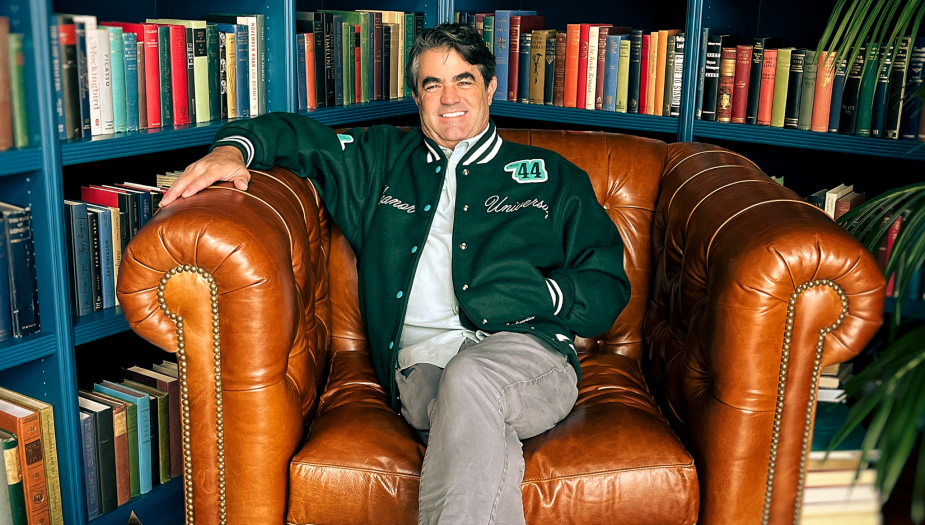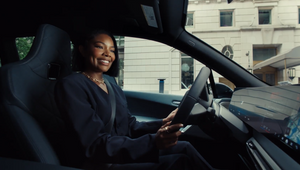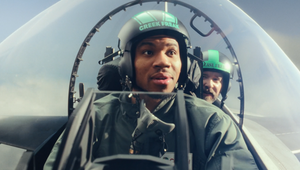
Bossing It: Dan Duffy on Leadership as a Producer

For more than three decades, Dan Duffy has been instrumental in molding the careers of numerous directors and producers–the shepherding force behind award-winning projects, earning Emmys, DGAs, Cannes Lions, and Palme d'Or. Duffy joins the Eleanor team as managing director and executive producer, continuing his esteemed legacy of championing creative excellence.
LBB> How did you figure out what kind of leader you wanted to be – or what kind of leader you didn’t want to be?
Dan> Leadership as a producer is unique. You're still a member of the team. You’ve got to understand what the director needs. You've got to understand what the agency needs. You’ve got to understand what the client needs. You work with a lot of different people. Your leadership will be what gets everybody over the finish line.
I figured out pretty early on that I wanted to be the kind of leader that builds consensus and works with others to figure out the way forward. I didn't want to be like a leader that was too obsessed with being right or forcing people to do things that they weren't comfortable doing.
I find ways of operating that fit my personality. I’ve been told I'm a good communicator. And I'm a good listener. I try to understand what motivates people when there's a challenge.
If I need to change someone’s mind or point of view, it helps me to understand why they’re making decisions and behaving the way they are.
LBB> What experience gave you biggest lesson in leadership?
Dan> We were awarded a job, with a great call and a fantastic treatment. All parties were looking forward to moving ahead.
Fast forward to three days later - the entire creative team was gone - they left the agency. We soon found out the Client had different expectations for the project.
LBB> So, how do you deal with that?
Dan> We got the new group together in person. Even with a near total turnover of the creative team and a very wary client, we showed optimism, decisiveness, and a pure confidence in our original plan.
Being professional and being a leader means you take charge with decisiveness and preparation that ensures that your vision and execution survives even unexpected hurdles.
LBB> Did you always want to take on a leadership role? And if so, did you work towards it?
Dan> I always knew I wanted to be a producer. From the very beginning of my career, I was determined to do that. Producing is naturally a leadership position. You're not making all the decisions, but you're trying to move the project forward, and you need to be decisive to do that. From the start of my working life, I worked to learn from all the people around me how best to do that.
LBB> When it comes to leadership as a skill, how much do you think is a natural part of personality and how much can be taught or learned?
Dan> I think probably 75% of leadership is a natural ability, a natural part of your personality. But you absolutely can be taught the ways to improve that side of yourself. You can build skills and practice different techniques to be more effective. You can learn how to listen to certain instincts and when to ignore certain impulses. And how you can draw from other people's experiences and incorporate their knowledge into the decisions of your path forward.
LBB> What are the aspects of leadership that you find most personally challenging?
Dan> Nobody likes bad news.
I find that one of the most challenging parts of leadership is dealing with bad news. A lot of people like to avoid difficult conversations.
I'm a people pleaser. I like to make people happy. I like to present a positive attitude. I like to be optimistic. So when there's a problem, when a project’s not going well, when you have to, you know, face the music, that can be a difficult thing for me to deal with.
I've learned to try to anticipate bad news to best manage negative circumstances.
LBB> Have you ever felt like you've failed whilst in charge?
Dan> Teachers in school would always tell us failure is a big part of learning. Now, I have kids in high school, and they still say that.
I believe that failure is, to a certain extent, easier to deal with when you’re in an educational environment.
Failure in a work environment has higher stakes. Failure can affect people’s livelihoods and careers and relationships. Failure can affect your ability to be successful at work.
I can’t say that I’ve failed completely. I can say there’ve been circumstances where failure has been part of the process.
LBB> Do you think it's important to be as transparent as possible to the service of being authentic? Or is there a value in being careful and considered?
Dan> I sleep better at night when I'm transparent. And when I'm completely honest. Of course, there are ways of being careful and considered to avoid being cruel. There can be circumstances where you’re not as direct as others might be to avoid offending someone. You can be extra considerate when you understand the perspective of the other person on the other side of a difficult situation.
LBB> As you developed your leadership skills, did you have a mentor?
Dan> When I worked at Chiat Day day as a producer, the Head of the Department Elaine Hinton, was tough, direct, and a really clear communicator. She made it clear to everybody what they needed to do to be successful.
Later, Bill Davenport, the head of the production department at Wieden+Kennedy taught me how to make decisions in the service of the creative output. He was a more philosophical leader. He taught me that the creative output was the most important thing, and he gave us freedom to operate how we wanted as long as we were keeping that output in the forefront of our mind and our decisions.
He gave people a safe space to try things. A safe space to think for themselves. A safe space to ask questions without judgment. So I learned from him to also give other people creative freedom and to work that way, too.
LBB> In continually changing market circumstances, how do you cope with the responsibility of leading a team through difficult waters?
Dan> I've always felt in my career that if you consistently treat people well, and you do a good job with what you're responsible for, ultimately, success will come your way. It's about building relationships with all people you deal with, and keeping them strong. And when times are tough, you can lean on those relationships to guide you through rough waters.
LBB> What are the most useful resources you've found to help you along your leadership journey?
Dan> People. The relationships you build are your best resource. You can lean on people that have more experience than you. If they respect you and trust you, you can learn a lot from them in their experience. And that's really, really, really valuable. Learning to be better at your job, and dealing with people by getting inside the heads of other people who've done it better than you.
LBB> What are some of the ways in which you prioritize diversity and inclusion within your workforce?
Dan> Eleanor is built on diversity and a culture of embracing diversity. One of the most exciting parts about this new role is understanding from the inside how Eleanor has really pushed diversity and inclusion to the level that all companies should be at. And I'm really excited to continue to learn how best to do that from Eleanor.















